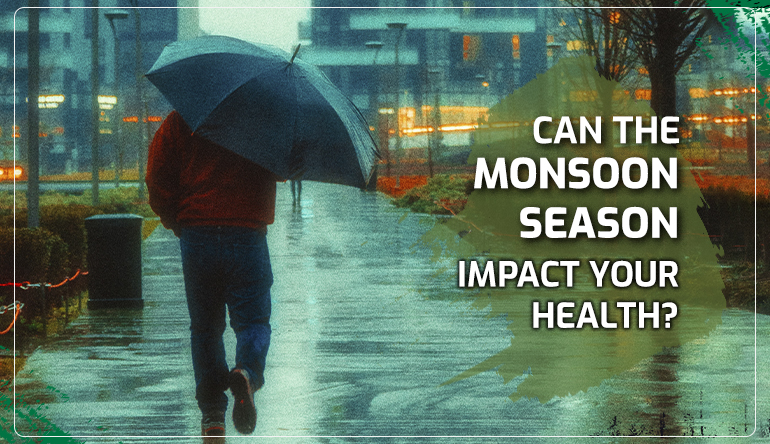The monsoon season in Pakistan is a pleasant change from the scorching summer heat, but it brings along uninvited guests, which must be avoided at all times. The following points should be taken into consideration as the monsoon reaches its peak.
First, let’s find out what sort of diseases are likely to spread during the monsoons.
- Jaundice
- Food poisoning
- Dysentery
- Typhoid
- Flu
- Cholera
- Cough
- Cold
- Indigestion
Senior citizens as well as children are the ones who get affected the most.
Stagnated water in the monsoon season is a breeding ground for insects, especially mosquitoes, and the monsoons are a peak time for malaria. Always wear or carry mosquito repellent.
This is mainly due to open sewer drains and water clogging in the rural areas, which become breeding grounds for mosquitoes. The easily available open water sewerage coupled with the high moisture content in the air results in the rapid growth of this deadly pandemic during the monsoon.
Dengue and malaria are spread by the bite of vectors carrying infectious diseases. These diseases are common during the monsoon as there are water clogging places like public parks, streets, and grounds. Mosquitoes thrive in stagnant water.
Around 40% of the world’s population lives in regions and surroundings where there is a risk of dengue spread. Unhygienic routines, and poor sanitation in public places, indoors and outdoors, are also one of the main reasons for the spread of dengue and malaria.
The signs of malaria are quite the same as those of other monsoon-related diseases in patients. This makes it a little difficult to spot it early on. The symptoms for these are visible by extreme shivering and chills followed by high fever and sweating with a sudden return to normal temperature. If you have any symptoms like those mentioned above, you may want to consult a doctor. Other symptoms include:
- Fever
- Headache
- Chills
- Abdominal pain
- Nausea and vomiting
- Diarrhea
- Muscle or joint pain
- The general feeling of discomfort
- Fatigue
- Rapid breathing
- Rapid heart rate
- Cough
According to a study by the National Institute of Health (NIH) Islamabad, there was a rise in dengue cases from 1st January to 25th November 2021. A total of 28,906 cases, including 183 deaths, were reported in the country.
What Precautions Should You Take For The Monsoon Season?
- Don’t eat pre-peeled fruits available outside.
- Avoid eating outside food, especially uncovered food items.
- Avoid adding ice to soft drinks, and juices while having them outside in restaurants/ food stalls.
- Don’t ignore any fever in the little ones, especially fever with body aches/ any bleeding.
The rainy season comes with its perks and precautions. While we should keep enjoying the season with all our hearts, we should also keep a check on the environment. Especially for our loved ones, friends, and family so that joyous moments don’t turn into unpleasant ones.
For any monsoon-related diseases, contact our professionals at Doctify to book an appointment for a check-up and be on the safe side.

